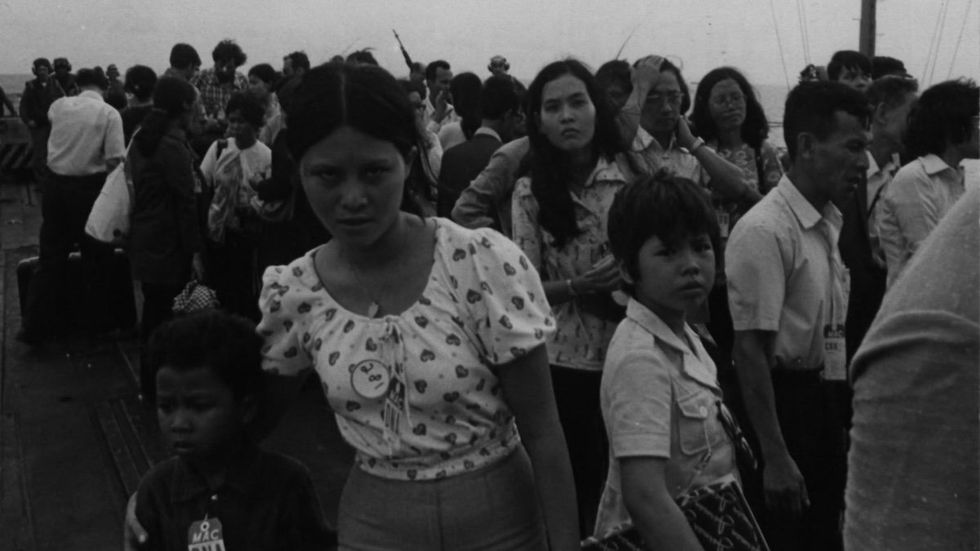Fifty years ago today, North Vietnamese troops seized Saigon, and ended the Vietnam war with a communist victory. GZERO writers and producers have taken a deep dive into the history behind this solemn occasion, exploring life in Saigon during the war, the emotional and chaotic scenes that unfolded as thousands fled, the life Vietnamese-Americans built from scratch in their new homes, and asking whether we have learned the lessons of the war.
50 Years on, have we learned the Vietnam War's lessons?
Fifty years after the fall of Saigon (or its liberation, depending on whom you ask), Vietnam has transformed from a war-torn battleground to one of Asia’s fastest-growing economies — and now finds itself caught between two superpowers. Ian Bremmer breaks down how Vietnam went from devastation in the wake of the Vietnam War to become a regional economic powerhouse.
Saigon’s Last Day: The fall, the flight, and the aftermath of the Vietnam War

Don Shearer, US Defense Department via National Archives
April 30 marks 50 years since North Vietnamese troops overran the capital of US-aligned South Vietnam, ending what is known locally as the Resistance War against America. Despite strong US-Vietnam reconciliation in recent decades, US President Donald Trump has forbidden American diplomats to observe the anniversary of this transformative moment — but those who survived the chaos that followed will never forget the trauma echoing down through the generations.
Saigon, April 29, 1975. For six weeks, South Vietnamese forces have been falling back in the face of a determined communist offensive. American troops have been gone for two years. The feeble government is in disarray. The people are traumatized by three decades of war and three million deaths.
Bing Crosby’s “White Christmas” begins playing on radios across the capital.
Some Saigonese know it’s a sign: It is time to run.
Lien-Hang T. Nguyen, now a Columbia University history professor, was just five months old, the youngest of nine children. After a failed first escape attempt by helicopter, her family heard about an uncle with access to an oil transport boat. More than 100 refugees crammed aboard the small vessel, where they waited for hours to set sail. Nguyen’s father nearly became separated when he dashed back into the city in a futile attempt to find more relatives.
At nightfall, they finally departed, crossing enemy-controlled territory under cover of darkness before being ordered onto an ammunition barge floating off the coast, bursting with over 1,000 refugees.
“When the sun rose the next day, April 30, we realized Saigon had fallen,” says Nguyen.
Read more about the amazing stories of survival, and just what happened to Vietnam after the war here.
PODCAST: Revisiting the Vietnam War 50 years later, with authors Viet Thanh Nguyen and Mai Elliott
On the GZERO World Podcast, two authors with personal ties to the Vietnam War reflect on its enduring legacy and Vietnam’s remarkable rise as a modern geopolitical player.
Life in Saigon during the Vietnam War
On GZERO World with Ian Bremmer, author Mai Elliott recalls how witnessing the human toll of the Vietnam War firsthand changed her views — and forced her to keep a life-altering secret from her own family.
Growing up as a Vietnamese refugee in 1980s America
On GZERO World with Ian Bremmer,Pulitzer Prize-winning author Viet Thanh Nguyen shares what it was like growing up as a Vietnamese refugee in the US — and how the Americans around him often misunderstood the emotional toll of displacement.








